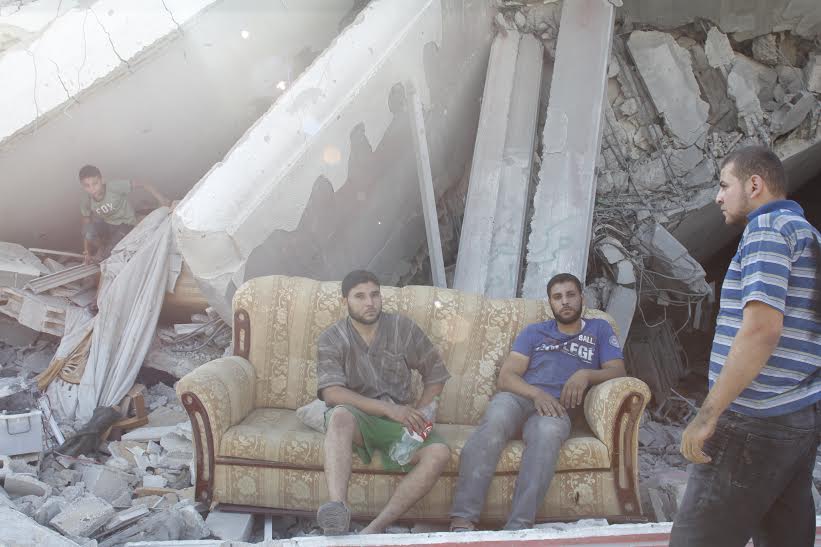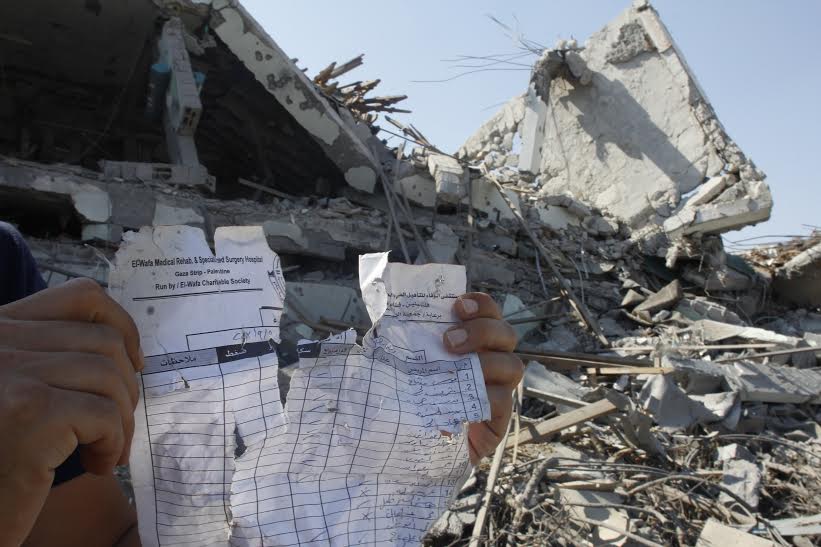A thousand words cannot frame them, these scenes of a Gaza apocalypse. Walk its ruins with a pen, and you yearn for tools more mighty – to move tons from the memories beneath, to cast trauma to the sea.
But a writer writes; he cannot right wrongs. Each story attests to that. Today, as I climbed through the rubble of yet another erstwhile town, a group of men from the El Ejleh family called out to me. “We need help,” they said. When I demurred, as I so often must, they dialed down to this: “Tell the world, at least. Tell them what happened to us.”

That much I can do. But is it enough?
In Arabic, there is a saying, a hadith of the Prophet Muhammad. Roughly, it says: if you spot a wrong, change it with your hands. If you can’t, then change it with your words. And if all else fails, well, change it in your heart.
And that, goes the saying, “is the weakest of faith.”
So the writer falls in the middle — not heroic, not hapless. But there are days when words simply fail. Today was one of them.
Today, I went to Sha’af, a community that sits just west of an Israeli tank unit — the same one, presumably, that flattened it to the ground. Six-story buildings stood my height. Corrugated tin hung mangled from phone cables. And everywhere the faces – anguished, ashen faces – looked for signs of what was.
Just then I found one — at the foot of an elevator shaft, a concrete hull angled against a wall. It was a teal wall, the color of something I had seen once. As I struggled to mine the memory, I found a paper beneath a rock, a half-shredded document that read “El Wafa.”
And there it was: the place where Dr. Basman Alashi, executive director of the El Wafa Medical Rehabilitation Hospital, had written about life in a hospital under siege. When I interviewed him at the beginning of this war – this war of one army – he told me about 14 elderly patients, “all dependent on round-the-clock professional care to survive.”

“We stay together,” he said, “or we leave this world together.”
When the shelling began, they left – fleeing, under fire, to another hospital. I wonder if they have been back since. Those who had, on this first day of the ceasefire, remembered a place no one would have thought to bomb.
No one, that is, but the Israeli army.
Munzer El Ejleh, who lived behind the hospital, sat with his sons on a sofa in the sun. It was all they could salvage of their home. When I asked him what he thought of the destruction all around, he repeated a familiar mantra among Gazans these days. “God,” he said, “is sufficient for us.”
Related:
‘We stay together, or we leave this world together’
Refugees once again: Gazans who lost their home wonder what’s next
In Al Shifa, doctors can’t keep up with the wounded
Palestinians flock to hospital to wait out assault

